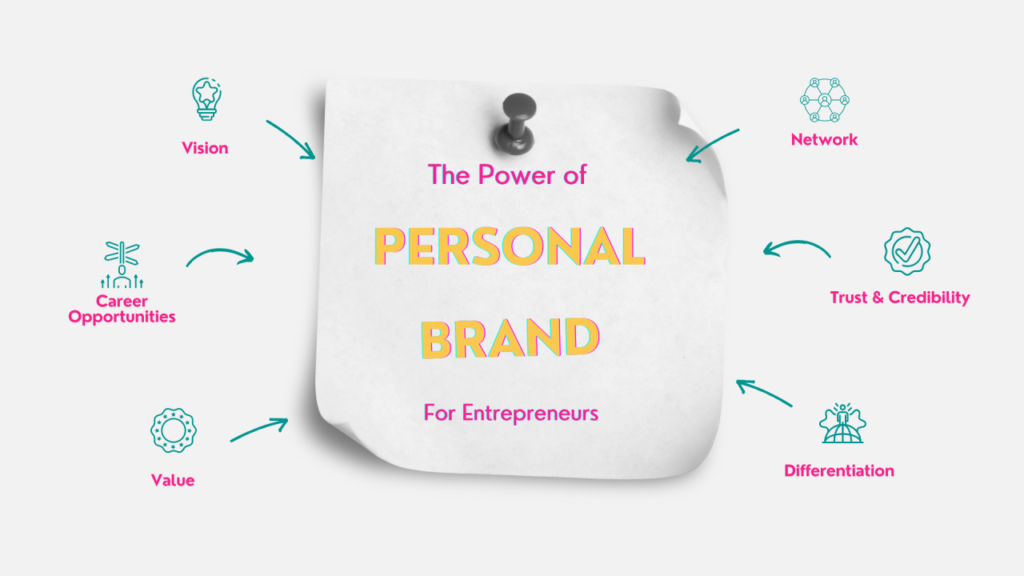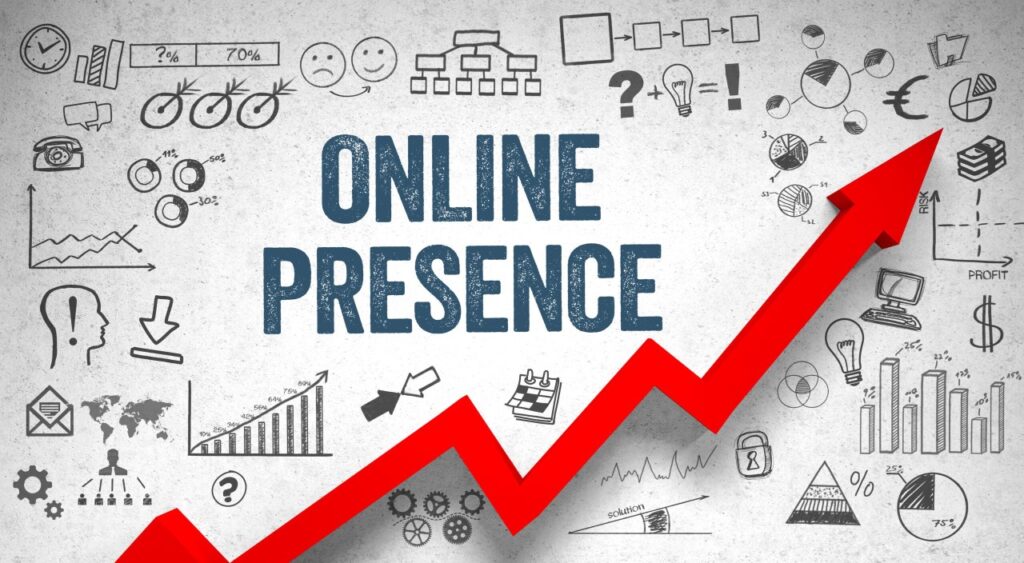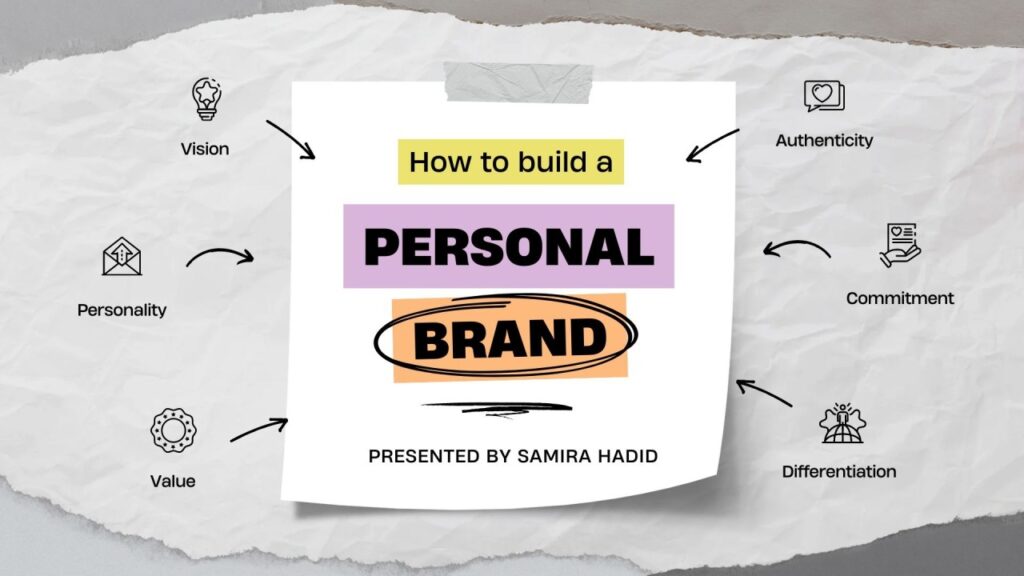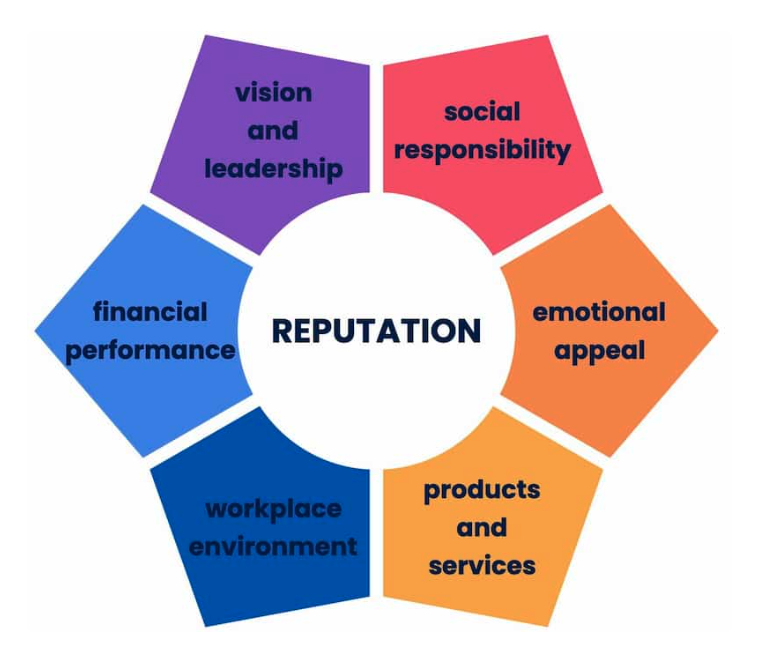In today’s hyper-competitive landscape, the “personal brand ROI” concept is more than a buzzword—it’s a critical strategy for achieving unparalleled corporate success. Your executive personal brand can be a powerful lever to propel your organisation to new heights. This blog will explore how cultivating a robust personal brand can substantially benefit you and your company.
Understanding the Power of Personal Branding

In the digital age, a personal brand is not just an accessory but a fundamental asset. As competition intensifies and attention spans wane, professionals—from freelancers to top executives—increasingly recognise the value of a well-crafted personal brand.
But what exactly is a personal brand? Think of it as an advanced version of a résumé. While a CV lists your skills, training, and experience, a personal brand also conveys your identity, including your values, philosophies, and unique perspectives that set you apart. The research underscores the importance of a personal brand. According to a study by Weber Shandwick, 59% of customers consider a CEO’s brand crucial in their decision-making regarding purchases or services. This statistic highlights that a CEO’s reputation is not merely a tool for attracting followers but a strategic asset that can significantly impact corporate success.
Despite their potential, many executives have yet to fully leverage their personal brands, especially outside the tech industry. This blog explores a robust personal brand’s return on investment (ROI). It provides actionable insights on how C-suite leaders can maximise their returns or consider engaging a personal brand strategist.
Investing in Your Brand

Understanding the required investment is essential to grasp an executor’s ROI fully. This investment consists of two key elements: time and effort.
Building a personal brand is challenging. It demands deep self-reflection, consistent effort, and a focus on delivering real value rather than engaging in superficial self-promotion. Every CEO decision, initiative, or hiring choice communicates a message to customers and peers. Transforming this message into a valuable personal brand requires dedicated time and energy.
So, where should executives direct their time and effort to maximise ROI? Consider focusing on the following areas:
1. Defining Your Brand Strategy
The first step in enhancing your brand is to define your strategy. Questions to consider include:
- Who is my target audience? Am I aiming to appeal to customers, fellow entrepreneurs, investors, or aspiring thought leaders?
- What is my brand’s mission statement, and how can I craft a compelling narrative around it?
Answering these questions will help you create a brand strategy that aligns with your goals and maximising ROI.
2. Building a Strong Online Presence

In 2024, over half of the global population will engage with social media platforms. Therefore, a CEO’s effective online presence is crucial. According to CEO Hangout, more than two-thirds of consumers are more inclined to buy from companies with CEOs who actively engage on social media. Additionally, over 80% of people are more likely to trust such companies.
Investing in your brand involves leveraging online platforms such as social media, blogging, podcasting, and creating a professional website. It is essential to focus on promoting the values and vision behind your company rather than just the products.
3. Networking and Relationship Building
A personal brand should not exist in isolation. Networking with industry peers by attending conferences, events, and seminars can enhance your image as a thought leader and foster valuable relationships. According to research, 80% of professionals believe consistent networking is crucial to career success. Building a robust professional network can increase media visibility and credibility.
4. Measuring Your Brand’s Effectiveness
To gauge the effectiveness of your brand, invest time in measuring various metrics:
- Set key performance indicators (KPIs) to track your brand’s impact.
- Use tools to monitor your online presence and engagement levels.
- Gather feedback to identify strengths and areas for improvement.
Building a successful personal brand is akin to investing in a retirement fund—consistency and effort are crucial for long-term returns.
Assessing personal brand ROI

Understanding the ROI of your brand involves evaluating both monetary and non-monetary returns. Here’s how a robust personal brand can impact your organisation and personal success:
Financial ROI:
1. Increased Business Leads
A solid personal brand can generate leads more effectively than traditional marketing methods. According to Weber Shandwick, 83% of executives reported that a solid personal brand increased media attention, enhancing brand awareness and profitability.
2. Expanding Audience Reach

A credible personal brand enhances trust and credibility, leading to a growing audience. This expanded reach can open new opportunities for deals, niche markets, and increased revenue.
3. Attracting Funding and Investment
Investors scrutinise CEOs before committing funds. A well-developed personal brand can make you more visible and appealing to potential investors. Nearly 90% of executives believe a robust personal brand is critical for attracting investment.
Non-Financial ROI:
1. Attracting Top Talent
A respected personal brand can make your company more attractive to top talent. Studies show that 77% of executives believe a positive image helps attract employees. Companies with strong employer brands retain high-value employees more effectively.
2. Enhancing Personal Reputation

A solid personal brand can elevate your status from a successful leader to a visionary thought leader. This recognition increases opportunities for speaking engagements, workshops, and industry-specific events.
3. Impacting Career Advancement
A solid personal brand can positively influence your career trajectory. Executives with credible personal brands are more likely to receive job offers and have an advantage during negotiations. According to ExecuNet, 94% of executives view personal branding as crucial for career advancement.
Maximising Your brand ROI
Tmaximiseze the ROI of your brand, continuously measure and reassess your strategy. Focus on building your authority, sharing valuable content, and engaging with your target audience. Here are some strategies to enhance your ROI:
1. Leverage Multiple Platforms
Diversify your online presence across various platforms to reach a broader audience. Limiting yourself to a single platform can restrict your brand’s influence.

2. Learn from Competitors and Peers
Suppose your brand isn’t delivering the expected results. Analyse what competitors are doing differently. Seek feedback from trusted peers to gain fresh perspectives and improve your strategy.
3. Emphasise Authenticity
Authenticity resonates with audiences and stakeholders. Instead of just showcasing achievements, present yourself genuinely and transparently. This approach can help build stronger connections and improve ROI.
Questions to Consider:
- Are you effectively reaching and engaging with your target audience?
- Are you securing opportunities to share your story with journalists and on relevant platforms?
- Are you controlling your brand’s narrative, or are others shaping it?
- Are you gaining industry recognition, or is your brand being overshadowed?
Conclusion
The strategic role of a personal brand in the market must not be balanced. A successful personal brand must appeal to diverse audiences, establish authority, and remain authentic. A well-developed personal brand has significant benefits, such as attracting top talent, enhancing organisational visibility, and expanding your audience. With dedicated time and effort, a powerful personal brand’s ROI can transform your career and your organisation’s success.












